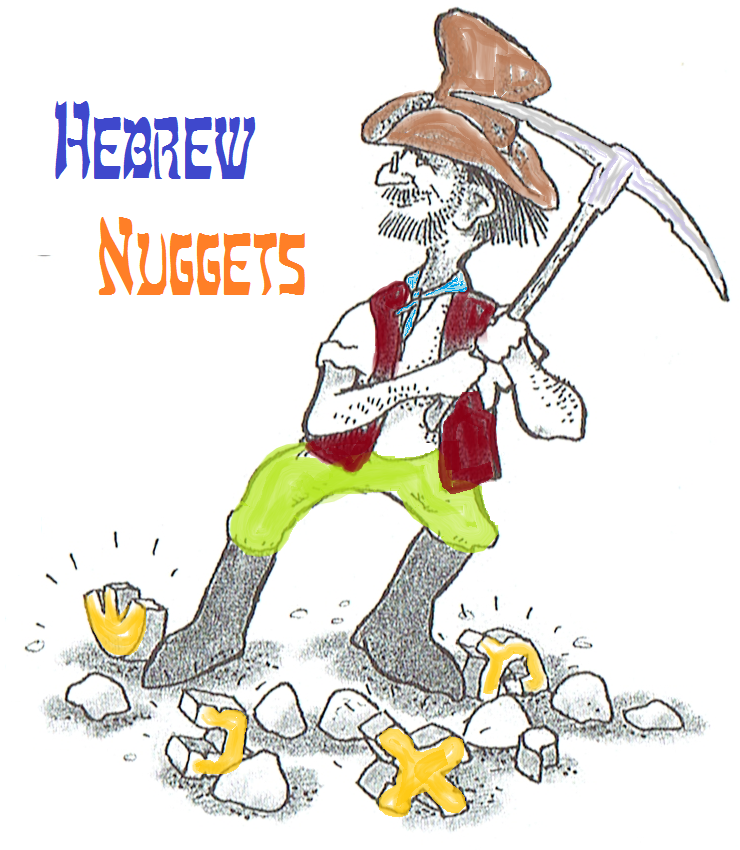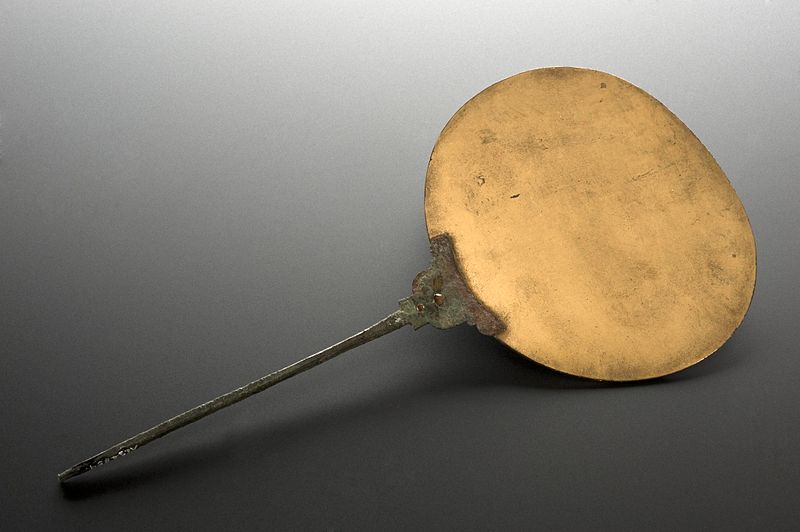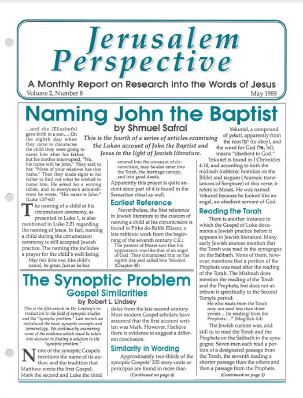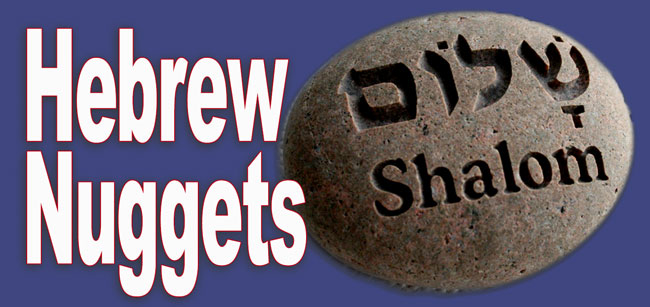Hebrew Nuggets is an article series that introduces beginners to Hebrew letters, Hebrew vocabulary and spiritual insights from the Hebrew tradition.
Revised: 2-Oct.-2015
 The first letter in the word יִשְׂרָאֵל is י (yod). Remember that in our system of transliteration, yod is transliterated “y.” Under the yod of יִשְׂרָאֵל is a vowel symbol we have not yet learned—a single dot. This vowel is called ḥi·RIK, and is Hebrew’s long “e” sound, pronounced as the “i” in “ski.”
The first letter in the word יִשְׂרָאֵל is י (yod). Remember that in our system of transliteration, yod is transliterated “y.” Under the yod of יִשְׂרָאֵל is a vowel symbol we have not yet learned—a single dot. This vowel is called ḥi·RIK, and is Hebrew’s long “e” sound, pronounced as the “i” in “ski.”
Premium Members and Friends of JP must be signed in to view this content.
If you are not a Premium Member or Friend, please consider registering. Prices start at $5/month if paid annually, with other options for monthly and quarterly and more: Sign Up For Premium
In English yis·ra·’EL is spelled “Israel” and pronounced IZ·ray·’l or IZ·r’l. The modern English form is derived from the Greek spelling (Ἰσραήλ, is·ra·EL), which was the basis of Late Latin, Old and Middle English spellings.
As we explained in Lesson 1, because the letter “j” was pronounced as a “y” sound in early English, most biblical names beginning with yod are spelled in English with a “j.” Having introduced the ḥi·RIK, we now can be more precise: biblical names beginning with yod accompanied by any vowel other than ḥi·RIK begin in English with a “J.”
There is one partial exception: the name of the prophet יְשַׁעְיָה (ye·sha‘·YAH), beginning with yod plus she·VA’, is spelled “Isaiah.” However, the spelling of every other ye·sha‘·YAH) in the Bible is consistent with the rule. There are several other men with the same name as the prophet, and their names are transliterated “Jesaiah” or “Jeshaiah” (1 Chr. 3:21; 25:3, 15; 26:25; Ezra 8:7, 19; Neh. 11:7).
Biblical names such as “Israel” that begin with yod accompanied by ḥi·RIK, begin in English with “I.” There are only a few exceptions, such as יִשַׁי (yi·SHAI, “Jesse”) and יִרְמְיָה (yir·me·YAH, “Jeremiah”).
Long ḥi·RIK
A ḥi·RIK often appears in a word followed by yod. Many grammarians consider such a ḥi·RIK to be a long vowel, and a ḥi·RIK with no following yod to be a short vowel. Although there is evidence that in ancient times the ḥi·RIK with yod was held a little longer than the ḥi·RIK without yod, in modern Hebrew no difference is made between the two. In Hebrew Nugget’s transliteration system, both are transcribed i.
A yod that follows ḥi·RIK is in effect silent,[1] since it does not influence pronunciation. The idea of a silent yod or a yod that is somehow connected to the long “e” sound should not be foreign to English speakers. The “y” is sometimes pronounced with a “y” sound as in “yard,” at other times as a long “e” as in “pretty” and “easy,” and at other times it is silent as in “key.”
Reading Practice
Now that the ḥi·RIK has been introduced, we can read the following words:
עִם (‘im), “with.” In Hebrew, personal suffixes can be attached directly to prepositions: “with me” is ‘i·MI; “with us” is ‘i·MA·nu. Therefore, “with us [is] God” or “God with us” is the two-word compound ‘i·MA·nu ’el, transliterated “Immanuel” in English versions of the Bible.
הִיא (hi’), “she.” In the reading practice of Lesson 9 we learned the Hebrew word for “he”—הוּא (hu’). Now we also are able to read the word for “who”—מִי (mi). If you have watched the Abbott and Costello comedy routine, “Who’s on First?” you will be amused to note a similar possibility of confusion here: in Hebrew מִי (mi) is “who,” הוּא (hu’) is “he” and הִיא (hi’) is “she.”
עִיר (‘ir), “city.” This word means “city” in modern Hebrew, but in ancient Hebrew sources it usually meant “village.” For instance, Nazareth, Jesus’ hometown, is referred to in the Gospels as a “city”; yet in the time of Jesus it was no more than a small village. Assuming a Hebrew background to the Gospels would explain the Gospels’ surprizing use of “city” to refer to Nazareth.
אִי (’i), “island.” Although this word has two letters and a vowel, since both letters are silent, we only hear the sound of the ḥi·RIK.

An ancient bronze mirror from Egypt. Photo courtesy of Wikimedia Commons.
רְאִי (re·’I), “mirror.” There is a single instance of this word in the Bible, where it appears in the phrase, “hard as a molten re·’I” (Job 37:18). As with most biblical words that occur only once, scholars are not certain of the word’s exact meaning. If רְאִי means mirror in Job 37:18, then it seems that in those days a mirror was made from cast metal.
לֵוִי (le·VI), “Levi; Levite.” לֵוִי has four meanings:
- the third son of Jacob and Leah (Gen. 29:34);
- the tribe made up of the descendants of Levi, later set apart by God to be the nation’s priests (Deut. 10:8);
- a member of the priestly tribe of Levi (Judg. 17:7, 9);
- a Levite of non-Aaronic descent.Although originally all members of the tribe of Levi were designated priests, a careful distinction later was made between Levites who were descendants of Aaron and those who were not. Only the former were now priests and allowed to offer sacrifices or enter the sanctuary. The latter were simply Levites, and were subordinate to the priests (Num. 18:1-7; Ezek. 44:10-16). According to the Mishnah, when the Torah is read publicly in the synagogue, “a ko·HEN [priest] should read first, after him a le·VI [Levite], and after him a yis·ra·’EL [an ordinary Jew]” (m. Git. 5:8).

Levi’s Jeans logo. Image courtesy of Wikimedia Commons.
“Levi’s” today is almost synonymous with blue denim jeans. This name informs us that the creator of this revolutionary type of clothing was a modern-day Levite.
שִׁיר (shir), “song,” “poem.” Since biblical times, the Hebrew language has used the same word for “song” (Ps. 137:4) and “poem” (Song 1:1). The plural of shir is שִׁירִים (shi·RIM).

- [1] When, however, the yod following ḥi·RIK has a dot in it, it is not silent, but is pronounced “y” as in, e.g., אִיּוֹב (’i·YOV, “Job”). ↩



